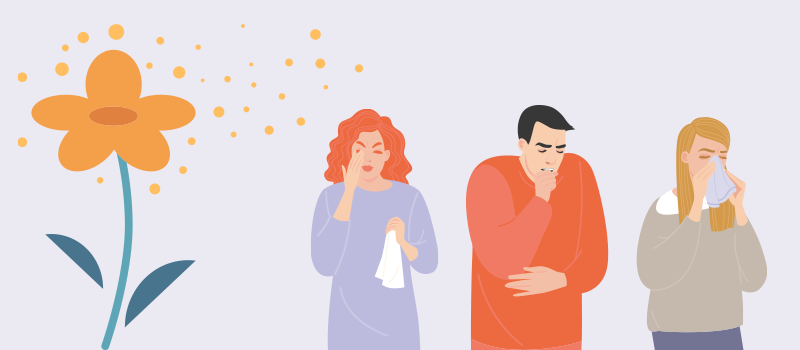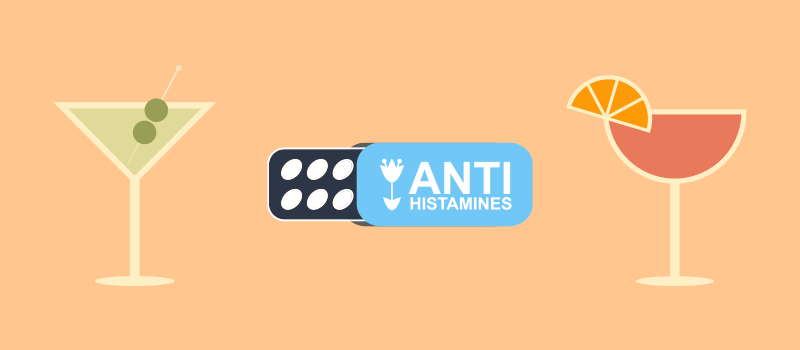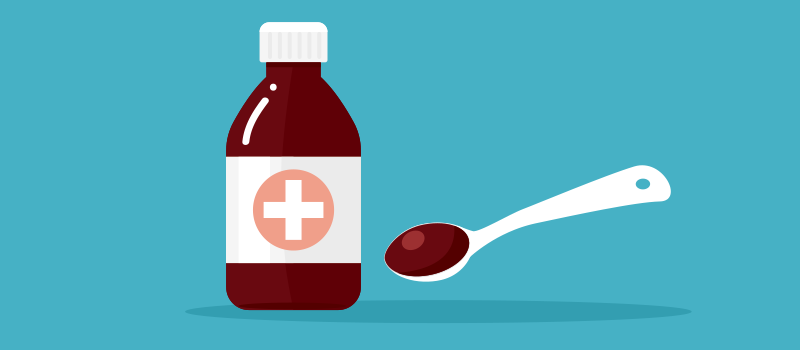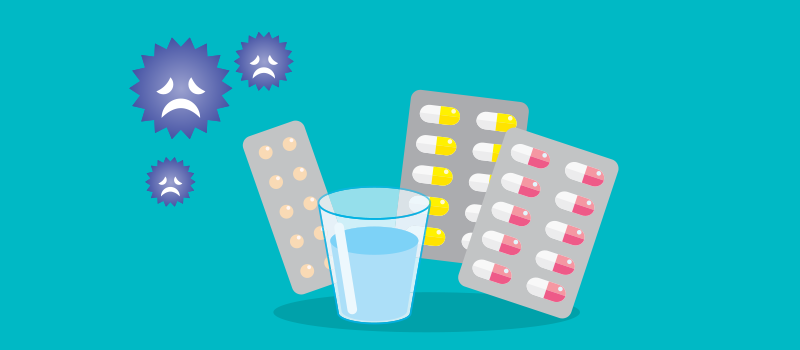What’s the Buzz
The Bee Healthy Blog
What is the Best Medicine for Sinus Congestion?

The sinuses are air-filled cavities located behind the forehead, eyes, nose, and cheeks. In healthy individuals, the sinuses are germ-free. The air flows freely, and the mucus drains out easily through the sinuses. However, if a person develops a sinus infection, they can develop sinus congestion and other symptoms like sinus headaches, stuffy nose, and nasal swelling. Certain medications can help to relieve symptoms of sinus congestion. Please continue reading to learn more about your options for sinus congestion relief.
What causes sinus congestion?
Various health conditions can cause sinus congestion. Some possible causes of sinus congestion, sinus pressure, and nasal congestion include the common cold, flu, seasonal allergies, allergic rhinitis (hay fever), chronic allergies, acute or chronic sinusitis (sinus infection), nasal polyps, and a deviated nasal septum.
What does sinus congestion feel like?
The most common symptom of sinus congestion is sinus pain, which is a pressure-like pain behind the eyes and cheekbones. Facial tenderness and toothache can also present. Sinus congestion is often accompanied by other symptoms such as runny nose, blocked or stuffy nose, nasal discharge, postnasal drip (trickling in the back of the throat), headache, sore throat, cough, loss of smell, bad breath, fever, and tiredness.
What medicines can relieve sinus and nasal congestion
Both prescription medications and over-the-counter (OTC) decongestants can treat nasal congestion and relieve other sinusitis symptoms.
Oral Decongestants and Decongestant Sprays
Congestion in the nasal passages and sinuses occurs when blood vessels become swollen with excess fluid. Decongestants help reduce sinuses' swelling and relieve sinus congestion by reducing blood flow to the nasal passages. OTC nasal decongestants are available as nasal sprays:
- Oxymetazoline-containing products: Afrin, Zicam Sinus Relief, Nostrilla, Dristan, Vicks Sinus Nasal Spray
- Naphazoline-containing product: Privine
- Phenylephrine-containing products: Rhinall, Neo-Synephrine, Little Remedies Decongestant Nose Drops.
Examples of commonly-used oral decongestants are Sudafed PE (phenylephrine) and Sudafed (pseudoephedrine). Both of these oral decongestants are available without a prescription, except Sudafed is kept behind the pharmacy counter and available upon request. This restriction on pseudoephedrine is due to the fact that this chemical can be used illegally to manufacture methamphetamines.
Always use a nasal decongestant according to the package instructions. An OTC decongestant nasal spray should be used for a maximum of 3 days to avoid rebound congestion, i.e., worsening nasal congestion that won’t go away.
You should not take an oral decongestant for longer than 7 days without being medically reviewed, especially if your symptoms worsen or you start having a fever.
Keep in mind that decongestants can cause high blood pressure and increased heart rate. Even though oral decongestants do not cause rebound congestion, long-term use of these medications is not recommended. Call your doctor for advice, diagnosis, or treatment if you have health issues or take other medicines.
Oral decongestants are not appropriate for:
- Children under the age of 4
- Those with an allergy to phenylephrine or pseudoephedrine
- Those who are currently taking monoamine oxidase inhibitors (MAOI) or have taken one within the past 2 weeks. Examples of MAOIs to treat depression: selegiline (Emsam), phenelzine (Nardil), isocarboxazid (Marplan)
Antihistamines
Antihistamines are commonly used to treat allergies. They can help to relieve sinus congestion caused by allergy symptoms. They are available as oral capsules or tablets, nasal sprays, and eye drops. Examples include loratadine (Claritin), cetirizine (Zyrtec), and diphenhydramine (Benadryl). Some medications contain both an antihistamine and a decongestant combination, for example, Allegra D (fexofenadine and pseudoephedrine). These combination medicines are very effective in providing relief from sinus congestion. Compared to the older generation (e.g., diphenhydramine), Claritin and Zyrtec are commonly used since they are a lot less sedating.
Steroid Nasal Sprays
These medications can help to relieve stuffiness, pressure, and congestion by decreasing inflammation of the nasal passages. They act on the immune system and reduce the immune response in the nasal passages and sinuses. Examples of over-the-counter steroid nasal sprays include fluticasone (Flonase), triamcinolone (Nasacort AQ), and budesonide (Rhinocort AQUA). It is important to use steroid nasal sprays correctly; this type of nasal spray only works well if you use it every day. Also, you should be patient, as it may take up to 2 weeks to see any results.
Pain Relievers
A pain reliever such as acetaminophen (Tylenol) or ibuprofen (Motrin, Advil) can help relieve the pain associated with sinus pressure and congestion.
Ointments
Ointments that contain ingredients such as menthol or camphor can open up the nasal passages and help you breathe better. You can rub these ointments directly on your chest or upper lip. Some medicated ointments can be added to warm water, and you can breathe in the vapors.
Always get medical advice, diagnosis, and treatment from a healthcare professional if your symptoms do not improve with OTC medications for sinus congestion. Remember that, like all medicines, OTC medicines can also have adverse effects and may interact with other medications.
Prescription Medication for Sinus Congestion
The Centers for Disease Control and Prevention (CDC) advises that you see your healthcare professional if over-the-counter (OTC) medications are ineffective in reducing inflammation and relieving sinus congestion within a week. Your doctor may prescribe prescription drugs, such as antibiotics, for acute sinusitis (sinus infection). Also, you should get medically reviewed if you have a fever (temperature above 100.4 F), worsening symptoms, or frequent sinus or nasal congestion.
What are some home remedies for sinus congestion?
Besides over-the-counter and prescription medications to help with sinus congestion, there are several things you can do, such as inhaling steam and using Neti Pots to moisten and open up your nasal passages and sinuses. Here’s a quick overview of home remedies for sinus congestion:
- Use a vaporizer or humidifier to moisten the nasal passages.
- Inhale steam from hot water in a pot or hot shower.
- Use a saline nasal spray to moisten your nasal passages.
- Use Neti Pots (nasal saline irrigation) or another nasal irrigation device to flush out your sinuses and help relieve congestion.
- Place a warm, wet towel on your face to reduce discomfort and loosen up mucus.
- Use a bulb syringe to remove mucus from your nose.
- Drink plenty of fluids to thin your mucus.
- Avoid chlorinated pools, which can irritate your nasal passages.
- Keep your head raised on a couple of pillows when lying down.
- Avoid blowing your nose with too much force, as this can push mucus into your sinuses.
References:
- https://familydoctor.org/decongestants-otc-relief-for-congestion/
- https://medlineplus.gov/ency/article/000647.htm
- https://www.houstonmethodist.org/blog/articles/2022/mar/how-long-does-rebound-congestion-last-5-more-rebound-congestion-questions-answered/
- https://www.cdc.gov/antibiotic-use/sinus-infection.html












SOCIAL